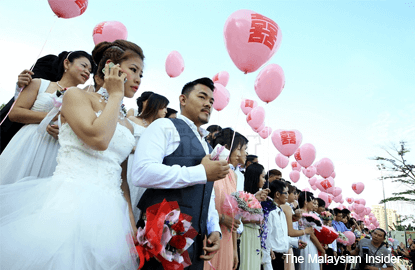
(Oct 29): Registering a marriage is of paramount importance to protect the legal interest of non-Muslim couple and their children in cases of death or separation, family lawyers said, following a Court of Appeal ruling that prevented a woman from dependency claims after the death of her partner.
Without marriage registration, the woman’s status was equivalent to a “keep” as she would have no rights over the wealth of the man or estate, while their children would be classified as illegitimate as most of existing law gave no protection.
Lawyers said the Court of Appeal ruling on Monday was right in declaring that customary marriage after July 1, 1982 afforded no legal protection since registration was compulsory.
Customary marriage was, at one time, legal until the Law Reform Act (Marriage and Divorce) 1976 came into operation in 1982, lawyer Ravi Nekoo said.
“A lot of complications could arise if the couple live together and have children,” he said.
He said this in response to the court ruling that bank executive Dee Bee Yoke was not entitled to dependency claims following the death of her partner, businessman Low Chin Wee, in a road accident in December 2011.
“She is not a wife within the meaning of the Law Reform (Marriage and Divorce) Act. So, she is not entitled to loss of dependency,” the court’s three-man bench chaired by Datuk Mohd Zawawi Salleh said.
The judge also said the bench would be producing a written judgment since this was an issue of public importance.
The couple, who have no children, only went through a Chinese customary marriage ceremony in 2009.
Ravi, however, said if the couple had children, they would be entitled to dependency claims under Section 7 (11) of the Civil Law Act (CLA) 1956 because the legislation defined “child” only as son, daughter, grandson, granddaughter, stepson and step-daughter.
“The CLA does not differentiate a legitimate and illegitimate child,” said Ravi, who is also a Bar Council member.
Ravi said under the Distribution Act 1958, an illegitimate child was not entitled to the parents’ wealth or inheritance.
“Such benefits only goes to the legitimate or adopted child.”
He said an illegitimate child could only acquire movable or immovable property if the parents had bequeathed such assets to them through a will, or had transferred such assets during their life time.
Another lawyer, Pushpha Retnam, said guardianship of children would also arise if the couple’s marriage was not registered and they separated later.
Under common law, the mother was entitled to guardianship of the illegitimate child.
“However, in Malaysia, older case laws have given conflicting views but more recent legal pronouncements give the father the right of guardianship, especially after a separation,” she said.
Pushpha also said the man of the illegitimate child has to make a statutory declaration to pronounce that he was the father before the National Registration Department could issue a birth certificate.
She said this was a requirement under the Birth and Death Registration Act 1957.
“If not, the father’s name will not appear in the certificate but only the mother’s,” she added.
Pushpha said the Law Reform Act allowed for maintenance of children below 18 years when the parent divorced, but for illegitimate children, the Married Women and Children’s Act 1950 allowed the mother to compel the father to pay maintenance.
A wife was also entitled to property under the Distribution Act if there was no will.
“However, a woman who has not registered her marriage has no right over her man’s property and such assets goes to the family members of the male spouse.” – The Malaysian Insider